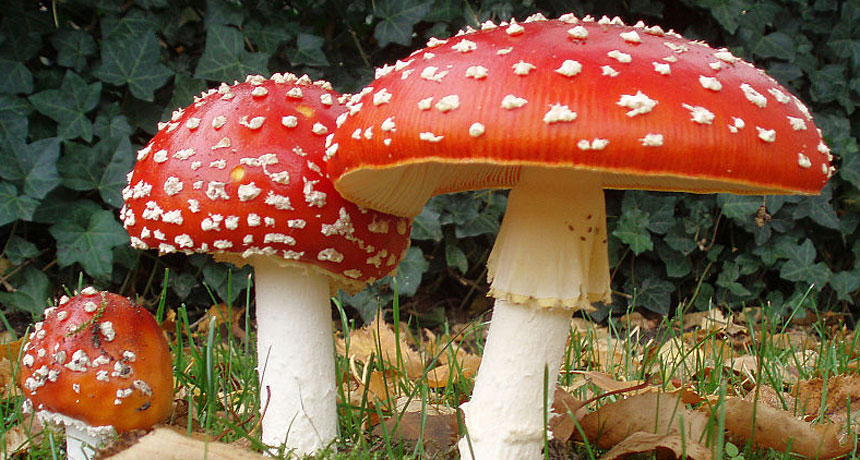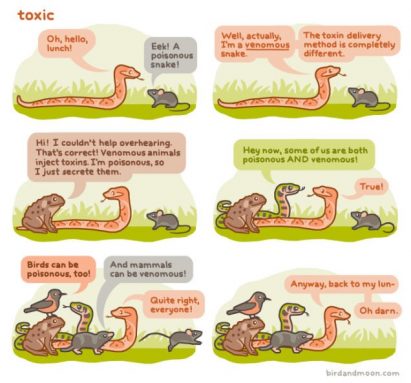Scientists Say: Poisonous
It’s any substance that is toxic — meaning it can harm health

This beautiful mushroom’s colors are a sign to stay away. It produces a poison that will sicken people unless it is cooked very thoroughly.
Ak ccm/Wikimedia Commons








